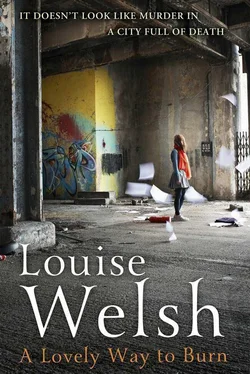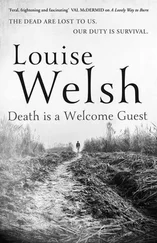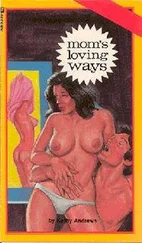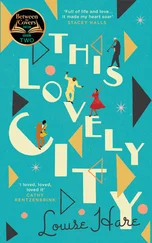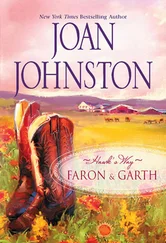She had just managed to string her handiwork over the bathroom door when the man in the protective suit entered the cell. He shoved her on to the bed and swept the sheet away. Stevie had left the duvet lying on the floor and he scooped that up too. It was an awkward movement to make in the bulky suit and Stevie grabbed her chance. She kicked the stranger in the stomach, knocking him off balance, and dashed for the door. For a moment she thought she might make it, but her jailer flung out a gloved hand and caught her by the ankle, felling her smack against the floor. The fall knocked the wind from her and Stevie lay there for a long time after he had locked the door behind him.
The unwavering fluorescence of the overhead lights absorbed all concept of time, and Stevie wasn’t sure how long it was before the man returned. She was sitting on the edge of the bed, looking at the floor to avoid the camera’s stare and the dazzle of the lights, but raised her head when he entered. She ran her fingers through her hair, trying to coax it into some kind of a style. The man threw a tracksuit and some underwear on to the floor and said, ‘Shower and put these on.’
His voice was muffled by his head mask, but Stevie had felt his strength and knew that he was young. She gave him a modest version of her killer smile.
‘I’m not showering beneath a camera.’
‘Do it yourself, or I’ll make you.’ The mask made him sound like an asthmatic Dalek. ‘If you’d looked in a mirror lately, you’d realise no one’s interested in your skinny arse.’ He tossed a mobile phone on to the bare mattress. ‘When that rings, answer it.’
Stevie looked directly at the man’s mask. She could see her reflection in the visor, her head cartoon-large on its curved surface. She kicked her running shoes beneath the bed, pulled off Simon’s battered trousers and T-shirt, and stripped away her underwear. She forced herself to stand there for a second, naked and defiant, goose pimples rising on her flesh, and then scooped the fresh clothes from the floor and went through to the shower. She felt the man’s eyes following her. Her body trembled with fatigue and the uncertainty of whether his interest could be worked to her advantage, or if that would only add to the danger she was in.
‘I didn’t think you’d come.’ Alexander Buchanan looked like a man who had won the lottery but was worried taxes might decimate his winnings. He stood outside her room, his face framed by the door’s small window, a mobile phone to his ear. ‘I’m sorry for the clumsy welcome, but you didn’t give us many options.’
Stevie put the phone the man had left her on speaker. She faced the window and said, ‘There’s usually an alternative to chloroforming a girl and locking her up under surveillance.’ She tried to summon the woman she had been on Shop TV : the unflappable dolly, smart but unthreatening. ‘We were both friends of Simon’s. I thought that might make us friends too.’
Buchanan grinned and shook his head, as if she were incorrigible. The strain of the days since they had first met showed on his face, but his voice remained as smooth as a late-night disc jockey’s.
‘So why turn up unannounced, armed with a tyre iron and a gun?’
‘It’s chaos out there. I needed to protect myself.’
‘Perhaps.’
‘There’s enough death in the world.’ Stevie paused, to give her words more weight. ‘Dr Ahumibe has committed suicide.’
‘John left me a message before he took care of the remaining children. He told me his plans. A great pity.’
She had hoped the news would be a weakening blow, but the chemist might have been talking about arrangements for a working lunch. She said, ‘Dr Ahumibe told me about the mistake you made with the cerebral palsy treatment, and your decision to carry on.’
The chemist shook his head. The glass in the door’s small window was strengthened with chequered wire. It gave the illusion that his skin was rippling as he moved.
‘John’s weakness for confessing got Simon and me into trouble more than once when we were boys. I hope he also told you that continuing with the treatment was the quickest way to resolve the difficulty we were having with the formula.’
‘He told me you persuaded him that it was the best way forward, but that Simon didn’t agree.’
Buchanan made a face that might have been intended to convey regret.
‘Disagreeable is the last word one would apply to Simon, and yet he often did disagree. We always managed to persuade him in the end.’
‘But not this time.’ Stevie’s legs were sore, but there was nowhere to sit except for the floor or the bed, and she wanted to be able to see Buchanan’s expression. She leant against the door, putting her face next to its small window. ‘When Simon refused to go along with the cover-up, you killed him. I’m guessing Frei died for similar reasons.’
Buchanan put his face against the window, close to hers. He lowered his voice, as if they weren’t speaking from opposite sides of wood and glass, and putting their heads together was a prelude to a confidence.
‘A neat theory, but not what happened.’
This time the chemist’s smile was like a closing door. Stevie straightened her spine and looked Buchanan in the eyes. This was not a moment for soft selling or subliminal messages, this was a do-or-die deal. She put an edge of command into her words, as persuasive as a TV mesmerist.
‘Let me out of here so we can talk properly, like human beings.’
‘William and I have to be meticulous, if we’re to avoid infection.’
‘William?’
‘My son, Simon’s godson. You met him earlier.’
Alexander Buchanan’s grin infuriated her. So many people were dead, some of them at his hands, but the chemist still had a son he could keep close. Stevie touched her throat.
‘Was it your son who attacked me outside the TV studio?’
The chemist’s smile tightened.
‘I’m sorry if William frightened you. All he wanted was to save me embarrassment by getting hold of the material on Simon’s laptop. My son is young and lacks finesse, but he wouldn’t have hurt you.’
‘Did William tell you that I managed to pull off his balaclava when he attacked me? It meant I recognised him when I saw him running away from Simon’s apartment block, just before I discovered Hope Black’s body. William mistook Hope for me and murdered her. He would have strangled me if he could.’
‘Hope’s death was an unfortunate accident.’
‘That wasn’t the impression I got.’
Colour bloomed in Alexander Buchanan’s cheeks and Stevie saw that her jibe had met its mark. There was a dreadful pleasure in baiting the chemist. She felt a surge of adrenalin, the last power of the defenceless.
He said, ‘You’re hardly the best judge of character . . .’
Stevie thought Buchanan had hung up, but then she saw the look of frustration on his face and realised that the phone signal had died. The chemist slipped his useless phone into his pocket and turned away. Stevie banged her fists against the door and shouted, ‘LET ME OUT.’ But the chemist was striding down the corridor, his back straight, footsteps swift and steady, like a man with lots to do.
Stevie slept and dreamt, not of the disintegrating city, or the dead she had known, but of food: steaming pasta rich with pesto; forbidden crusty bread, warm from the oven and dripping with butter; Cornish pasties, swollen and succulent. She woke, hungry and ashamed, to the sound of a key turning in the lock. Buchanan’s son William entered, still clad in his protective suit. The room seemed to shrink around him. He showed her Hope’s gun.
Читать дальше
